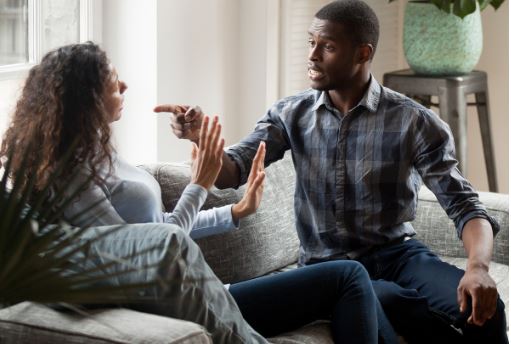Lifestyle
5 facts about physical abuse in a relationship

Physical abuse in a relationship is real and it is far more common than what many believe. It is also devastating and life-altering.
And most importantly – it happens in silence. It often remains invisible to the outside world, sometimes until it is too late to fix anything.
Whether you or someone you know and care about suffers from physical abuse in a relationship, it can be hard to see the signs and know what is considered physical abuse.
Here are a few illuminating facts about physical abuse in relationships and some physical abuse facts that may help the victims in getting the right perspective and the right help.
1. Physical abuse in a relationship is more than just battering
Many victims of physical abuse don’t realize that they’re in an abusive relationship.
This is because we are taught to view physical abuse in a relationship in a particular way, and if we don’t see that, we begin to doubt whether the abuser’s behavior constitutes as violence at all.
But, being pushed aside, held down against a wall or a bed, “lightly” smacked on the head, dragged along, roughly tugged, or driven recklessly, these all are, in fact, physically abusive behaviors.
2. Physical abuse in a relationship rarely comes alone
Physical violence is the most apparent form of abuse, but it rarely happens in a relationship where there is no emotional or verbal abuse as well.
And any abuse from the person that we were expecting would treat us kindly and protect us from harm is a ruinous experience. But when we add physically aggressive behavior to the emotional abuse and verbal insults in a relationship, it becomes a living hell.
3. Physical abuse in a relationship often develops gradually
What counts as physical abuse in a relationship doesn’t necessarily involve being harmed physically, but many forms of verbal abuse can also be constituted in an abusive relationship.
And emotional and verbal abuse can and often present an eerie introduction to a highly toxic and even dangerous relationship.
Not that psychological abuse can’t lead a victim into a range of self-harming beliefs and behaviors, but physical abuse in a relationship usually presents a dark culmination of such a pathological connection.
So, if your partner is constantly belittling you, causing you to feel guilty for their aggression and making you believe that you don’t deserve any better, be careful and watch for the signs. They may be on their way towards becoming physically violent as well.
4. Physical abuse in a relationship has long-lasting consequences
A lot of research has been conducted to determine what leads to physical abuse in the marriage, and what it causes. Obviously, there are immediate physical consequences of being tossed around or beaten.
But, these heal (even though they too can have severe and long-term consequences). In its extreme (which is not that rare), physical abuse in a relationship can be life-threatening to the victims.
For those who do survive, being exposed to continuing violence in what should be a loving and safe place results in a number of psychological and physiological changes.
Victims of physical abuse in a relationship (regardless of its duration, frequency, and severity) are at higher risk of developing depression, anxiety, post-traumatic stress disorder, or an addiction.
5. Suffering alone makes it worse
Victims of abuse know this very well – it seems impossible to leave the aggressor or a physically abusive partner. Regardless of how violent they may be at some moments, they are usually quite seductive and charming in other moments.
The abuse can happen with long periods of seemingly peaceful and quite happy days. But, unfortunately, once a partner has crossed the line of raising their hands to you, it’s highly likely that they will do it again.
Can a relationship be saved after domestic violence? Can a marriage survive domestic violence? Even if you can’t answer these questions, always remember that hiding and suffering alone is never the answer.
Tell someone you trust, get help, get in touch with a therapist, and discuss your possibilities.







